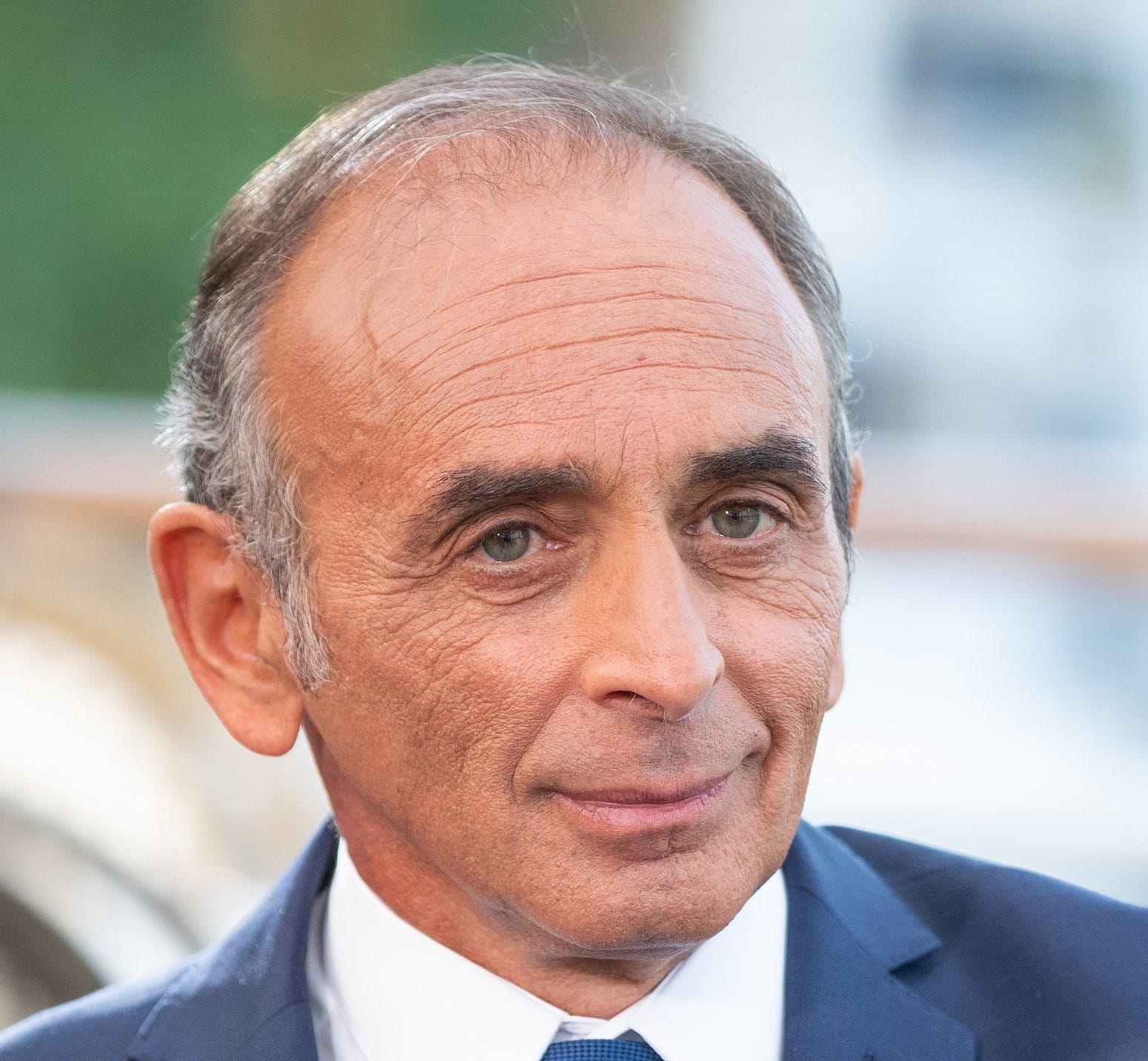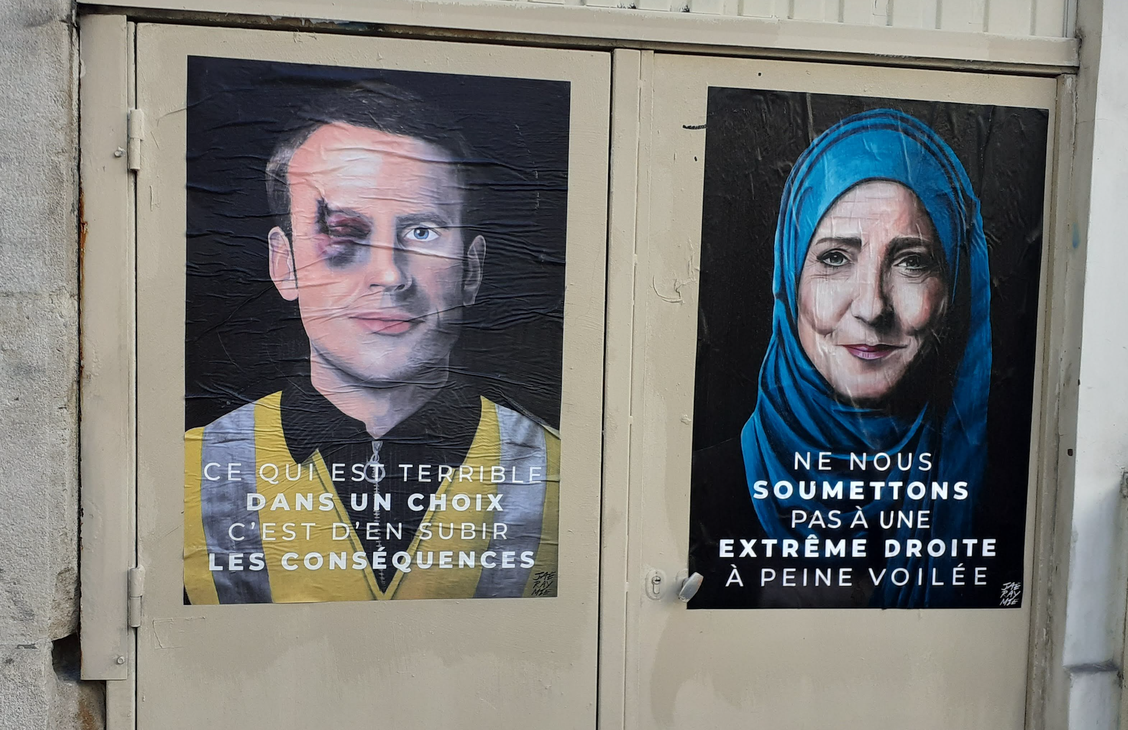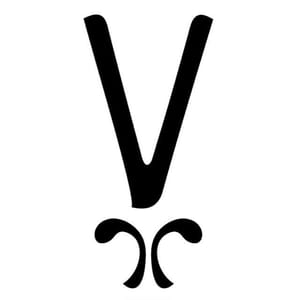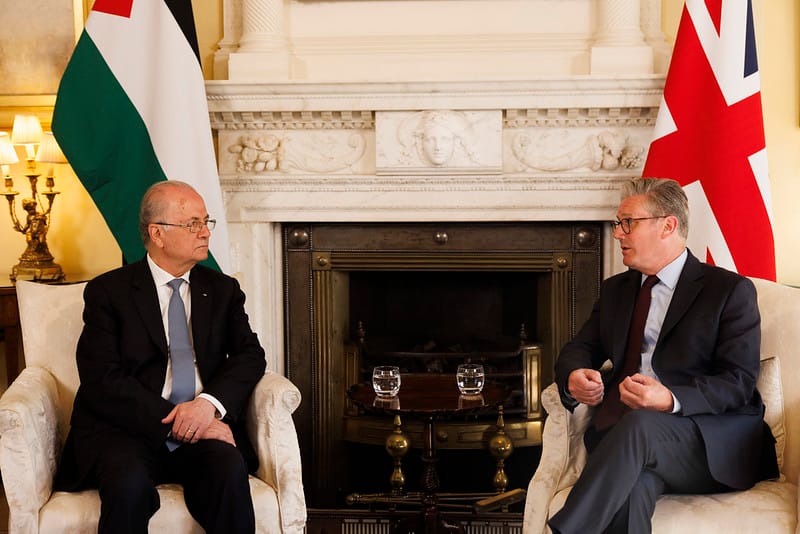The new face of the old far-right
President or no, far-right politician Éric Zemmour is reviving old hatreds.

After Macron’s election victory over Marine Le Pen on Sunday, we might think we can breathe a little easier. But the French far-right isn’t going away anytime soon. Instead, it has been strengthened and sanitised over the course of this election. In part, thanks to the presence of Éric Zemmour, the Jewish-Algerian far-right presidential challenger who stood in the French primary on the 10th of April and received 7% of the vote.
Zemmour gained a platform as a TV commentator and columnist at the newspaper Le Figaro, and rose to fame after starring on a channel backed by the right-wing billionaire Vincent Bolloré. He has been convicted for hate speech on three occasions, peddles the great replacement theory and praised the collaborationist government of General Pétain for having “protected French Jews”.
In the words of Jean-Marie Le Pen, founder of the National Front, and a convicted Holocaust denier, expelled from the party by his daughter Marine, “the only difference between Éric and me is that he’s Jewish”.
Helping us understand Éric Zemmour is Musab Younis, a lecturer in International Relations at Queen Mary University of London and the University of London in Paris, and a specialist on race and contemporary France.
Katie Ebner-Landy: On 30 March, walking home in Paris, I overheard a man speaking with AirPods on. The first thing he said that caught my attention was “that, well, that is a Jewish mafia”. I wanted to be sure that I heard him right, so I kept a slow pace.
The conversation continued. It turned out he was talking about Zemmour: a candidate who, “isn’t even married to a French woman but a Jew”. It was only the National Front, the man said, who could be trusted to defeat “this Jewish empire,” an empire he thought now extended its clutches to the extreme right.
How can we understand these comments, alongside statements about Zemmour like those made by Jean-Marie Le Pen?
Musab Younis: Zemmour is the son of Algerians who migrated to France in 1952. He was raised in a Jewish environment in France, attended Jewish private schools, and still describes himself as participating in the country’s Jewish community ("when I go to the synagogue," he said last year, "I’m very popular".) He is also a prominent far-right figure in European politics who was described by Philippe Poutou, the head of the New Anticapitalist Party, as a "fascist," and who ran in the most recent French election to the right of Marine Le Pen.
For many, the coincidence of these facts is surprising. We can identify two attempts to explain them. For some, Zemmour is seen as a stooge for far-right forces that are essentially antisemitic, and who are able to use him (because he is Jewish) as a convenient shield. This view is commonly expressed in France – consider, for example, the Green candidate Yannick Jadot's statement that Zemmour is “the useful idiot of antisemitism”.
For others – and this is the conversation you overheard on the street – Zemmour can be seen as confirming antisemitic fears about Jewish influence, which now extend even to the far right. There is no doubt that this latter view exists, but it cannot be expressed openly in France and probably represents a very small minority, even on the extreme right.
What is interesting about both these takes on Zemmour is that they read his Judaism in a fairly deterministic way. That is, they see Zemmour's Jewishness as either a major advantage, strengthening the far-right; or a serious drawback, weakening it. I'm not sure this is the most accurate way to explain the racial politics of the contemporary French far right. Neither really helps us to understand how and why hatred of minorities is politically mobilised in Europe, or how the histories of antisemitism and Islamophobia are connected.
KEL: The name Zemmour chose for his party was Reconquer, a reference to the Reconquista, the medieval Christian campaign to rid the Iberian peninsula of its Muslim conquerors (and which ended up in the expulsion of the Jews from Spain). Is there anything new about Zemmour’s brand of Islamophobia? Or is it – extending James McAuley’s comment that in “revealing and disconcerting ways, Éric Zemmour is France” – that Zemmour is Europe, with its entangled histories of antisemitism and Islamophobia?
MY: Zemmour reflects a broader reality in which anti-Muslim sentiment is espoused by right-wing political parties across the continent. The most cursory examination of political rhetoric on Islam in Europe yields a crop of extreme but commonplace views: about the incompatibility of Islam and Europe; the need to keep Muslims out of the continent; the horrifying fecundity of Muslim women; the violent, backward, incorrigible nature of Muslims, and so on.
Several commentators have pointed out that the quotidian nature of this discourse – what we might call, with a nod to Hannah Arendt, its banality – is reminiscent of the workaday antisemitism that animated late nineteenth-century European politics.
Matti Bunzl, an anthropologist who is now Director of the Wien Museum in Vienna, has written an influential article (and later book) on this topic. He points out that the violent antisemitism that once characterised public discourse in countries like Austria – where, in the years before the second world war, “every major political faction was overtly and programmatically anti-Semitic” – has become radically marginalised. Today, “no European party of any significance, and this includes the various extreme right-wing movements on the continent, currently champions a specifically anti-Semitic agenda”. Meanwhile, a view of Muslims as “essentially unassimilable” within Europe has become prevalent.
This process is what the historian Enzo Traverso describes as “the transition from the old anti-Semitism to the present Islamophobia”. His point is not that antisemitism has disappeared, of course. Instead, he suggests that its structural role has diminished because Islamophobia is now performing some of the key functions in European societies that used to be performed by antisemitism.
Traverso suggests that the best comparison with the treatment of Islam in contemporary France is nineteenth-century Wilhelmine Germany, where, even though Jews were actually excluded from the machinery of the state (unlike in France), there was panic in Germany about a “Jewish invasion” (Verjudung). For Traverso, antisemitism in nineteenth-century Germany helped to “negatively define a national consciousness” for Germans – “a German was first of all a non-Jew” – in the same way that Islam now “allows one to find, by a negative demarcation, a lost ‘French identity’, threatened or engulfed in the process of globalisation”.
KEL: How has this shift shaped the way in which Zemmour has constructed his media personality? His presidential bid comes after the publication of a series of bestselling far-right polemics – from French Suicide (2014) imagining that Muslim immigrants are to blame for the decline of the French nation, to French Destiny (2018), a more autobiographical journey through similar territory?
MY: Zemmour isn’t particularly interesting, in my opinion. There is little originality in his brand of anti-Islam, far-right politics, and he is a deeply uncaptivating writer and speaker. But what is perhaps unique about him is the way he prominently enacts the “transition” to which Traverso refers.
In the introduction to French Destiny, for example, Zemmour recounts his own childhood and explains some of the reasons he developed an antipathy to Islam. He spent some of his youth in a Jewish environment, he writes, but one in which “on était juif à la maison, Français dans la rue” (“we were Jewish at home, French in the street”). His own Jewishness, he emphasises, did not at all temper his love of France, his depthless patriotism. “The history of France flowed through my veins, filled the air I breathed, forged my childhood dreams,” he writes. He became especially obsessed with Napoleon.
But Muslims are different. Zemmour paints French Muslims as unpatriotic and listless proponents of their own separate civilisation, who disdain even “French syntax” with their own languages and slang, and who remake whole areas of French cities in their image through a process of “halalisation”.
We can see here how Zemmour quite consciously stages the dichotomy between the “good Jewish citizen, bad Muslim intruder,” thus leading his implicitly antisemitic reader towards the new rightful target of their rage. In the process, Zemmour does actually not rebuke antisemitism itself. That would involve some examination of its causes and roots, which remain deeply embedded in France as elsewhere in Europe.
Instead, Zemmour seeks to shift the focus of antisemitism by constructing the image of a group that more fully realises the fears of the classical antisemite: the secretly powerful, multiplying, subversive enemy within the national body. Negative demarcation remains key for Zemmour’s conception of French identity. Muslims are so troubling because they want to remain different: they refuse to melt into the national body politic. This framing taps into anxieties about the place of difference in the republic, which date back to the French revolution. Remember that in 1794 the first Paris Commune refused a petition from the Jewish community of Paris to bake matzah for Passover because “equality dictated that all citizens should eat the same bread”.
This isn't the whole picture – we could say much more about the complexities of Jewish and Muslim life in France today – but I think it helps us to understand how those who have traditionally been drawn to antisemitism might be attracted to Zemmour's narrative. And it also suggests why, despite its apparent valorisation of a Jewish place within Europe, this approach nevertheless seeks to minimise the history of Jewish suffering in Europe. Zemmour has no interest in raising questions about the structural causes of European antisemitism. That would require some explanation of the reasons behind outbursts of collective hatred against racialised groups, and might recall some uncomfortable moments and comparisons.

KEL: Moving from the French primary to the final run-off, I want to end by asking how you think this applies to the discourse of both Emmanuel Macron and Marine Le Pen. (Macron, whose interior minister, Gérald Darmanin, has made similar critiques to the Paris Commune about “communitarian cuisine”.)
Late in the final presidential debate held last Wednesday, Le Pen – who has otherwise had her image helpfully cleaned up by the electoral presence of Zemmour – finally came out with her electoral promise to ban the “veil” (voile) in public.
After correcting this to the “headscarf” (foulard) Macron’s response was to make an equivalence with the kippah, emphasising to Le Pen that this would be reminiscent of a specific context that targeted people for wearing religious symbols in public. This didn’t really seem to leave a dent. Rather, Macron was put on the back foot, needing to extoll the number of mosques that he had put under surveillance during his presidency.
How do we understand the shades of Islamophobia that exist from the right to the centre? What could someone like Mélenchon, leader of France Unbowed (who received 22% of the vote), or a different left candidate, have said?
MY: That was a predictably depressing moment of the debate, when Muslim women – “like clockwork”, as Safya Khan-Ruf points out – became a dehumanised point of political disputation. Macron’s response showed that his approach functions according to the same essential logic as Le Pen: yes, there is a “Muslim problem,” in which the bodies of Muslim weapon represent a valid target of state regulation, but there are better ways of dealing with that “problem”.
Consider the reasons Macron gave against a public headscarf ban: it would be unworkable, lead to civil war, and make France the first country in the world to take such an extreme measure. Nowhere did he bother to suggest that Muslim women should have a right to wear what they want.
What would Mélenchon have said? We shouldn’t forget that he called the Muslim “veil” a “repugnant and obscene practice” back in 2010 – a not isolated statement in his long political career, even if Sebastian Budgen is right to suggest that Mélenchon’s position on Islam has improved significantly since then.
Another – perhaps ideal – response to Le Pen could have expressed solidarity with Muslim women in France, admired their collective bravery in the face of daily attacks, asserted the right of all people to exercise their religion without harassment or control, and pointed out that recurrent panic over the attire of a minority group does not exactly recall the brightest moments of French history.
Musab Younis is a lecturer in International Relations at Queen Mary University of London and the University of London in Paris, and a specialist on race and contemporary France.
Katie Ebner-Landy is an editor at Vashti.
Authors
Musab Younis is a lecturer in International Relations at Queen Mary University of London and the University of London in Paris and a specialist on race and contemporary France.

Katie Ebner-Landy is a Junior Fellow at Harvard’s Society of Fellows and an editor at Vashti.
Sign up for The Pickle and New, From Vashti.
Stay up to date with Vashti.



